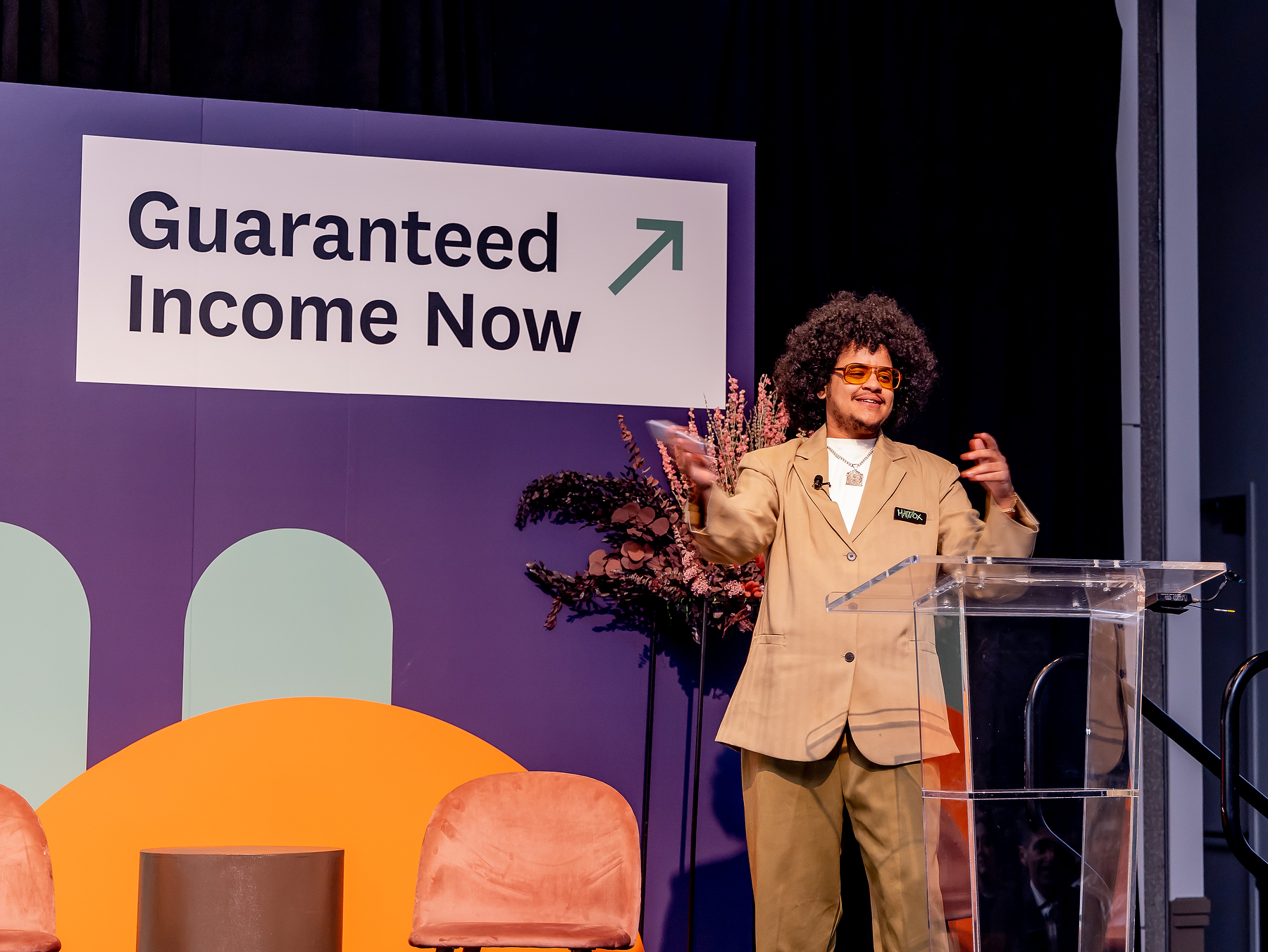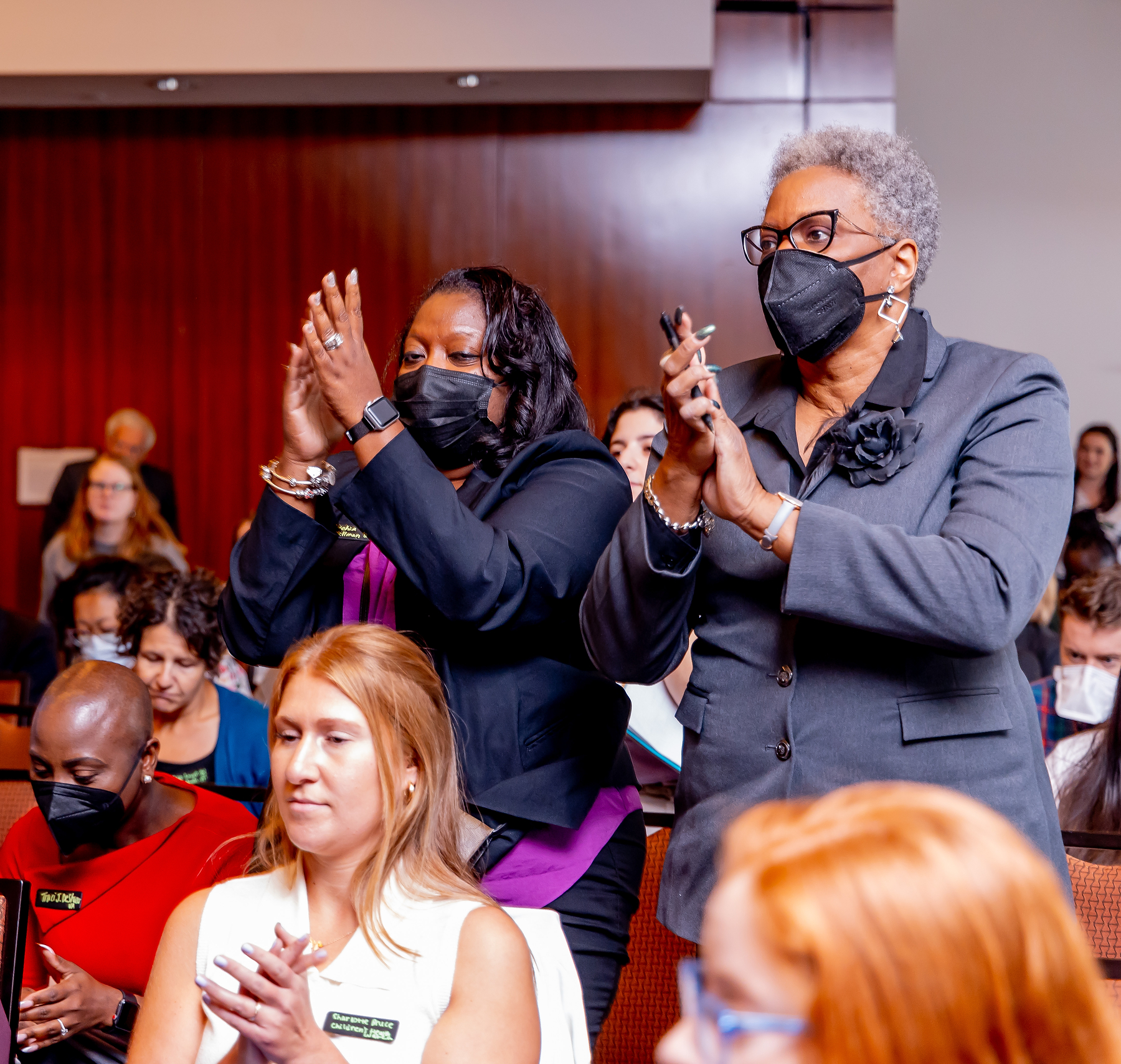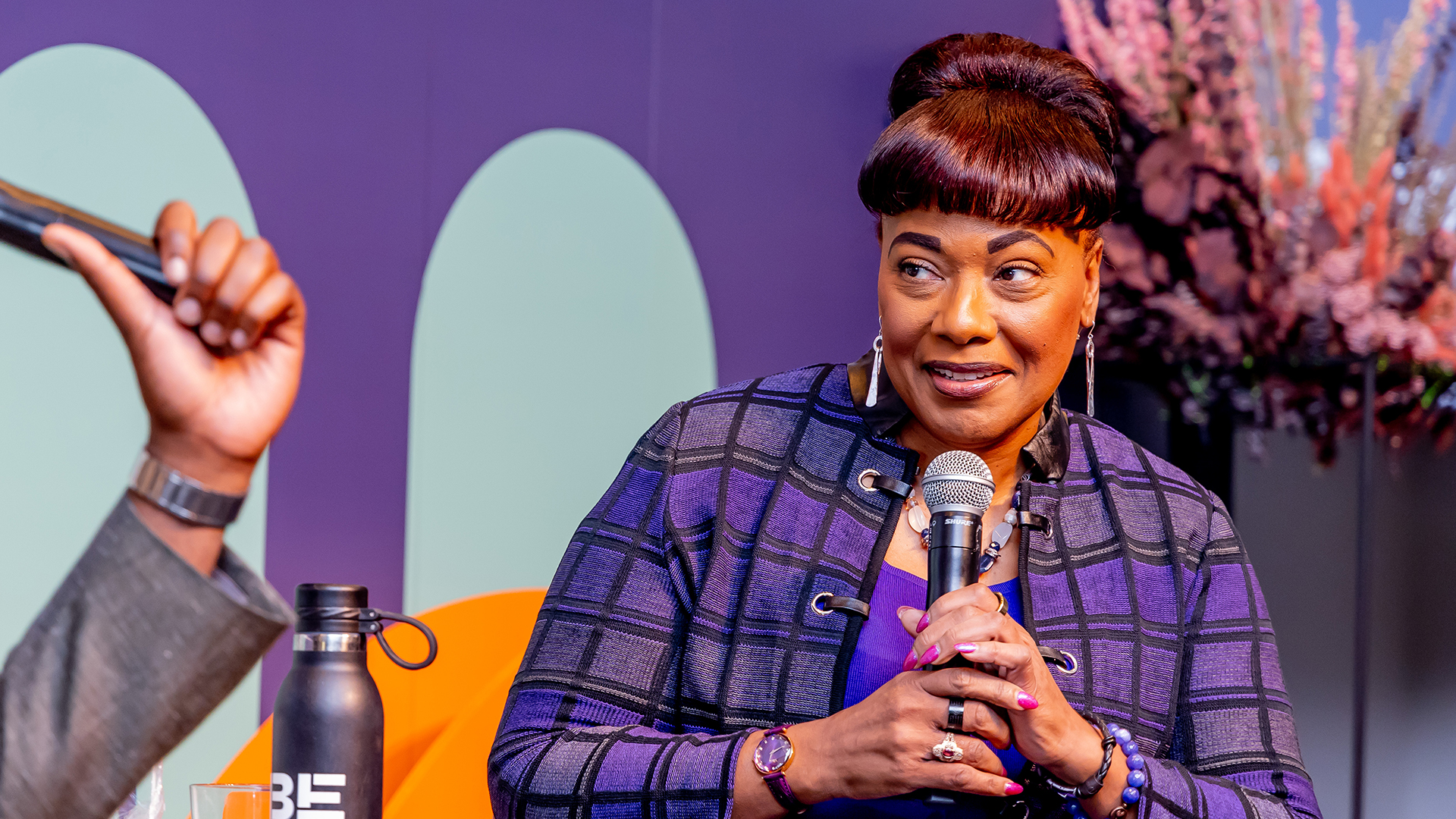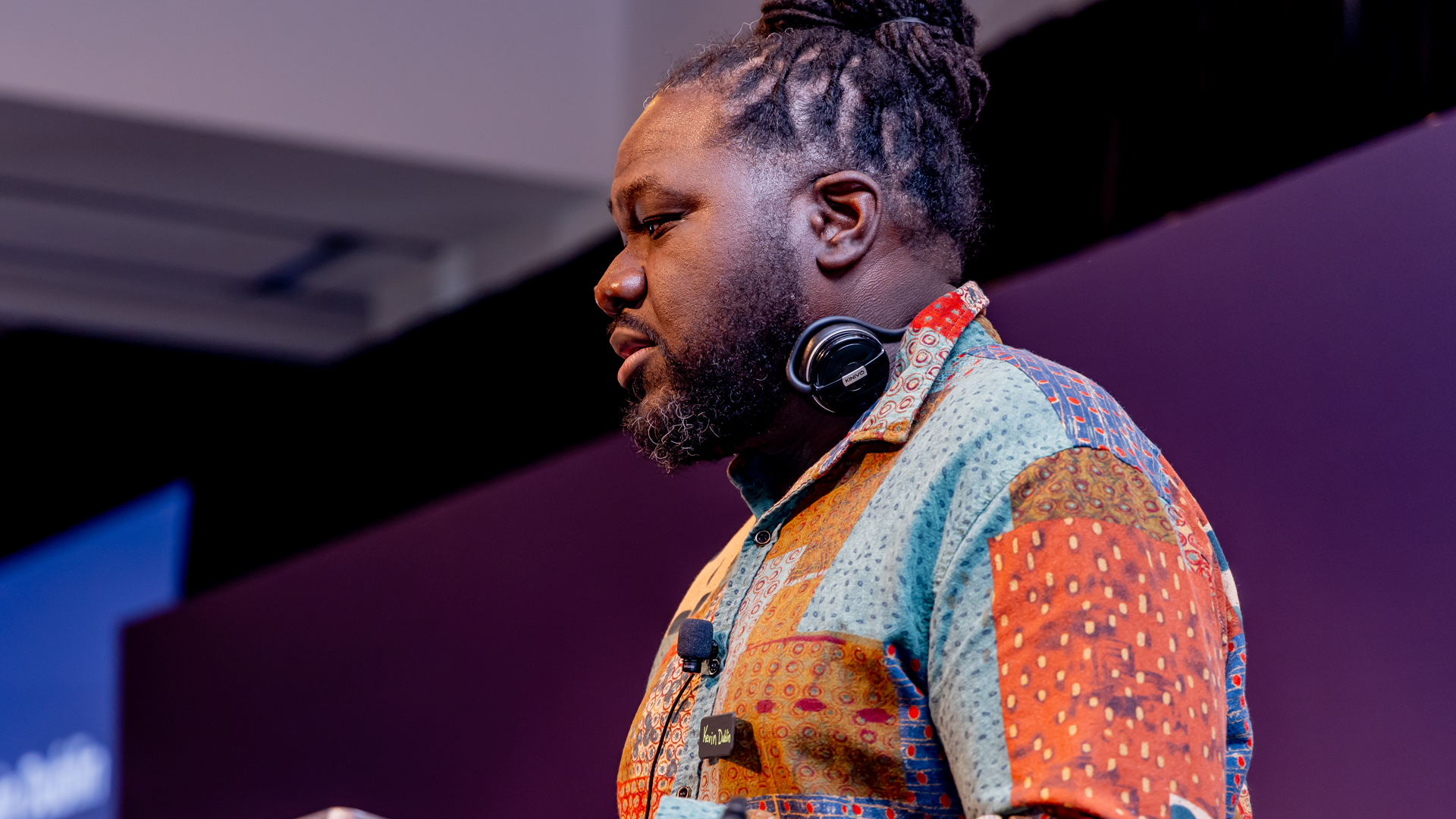Event
Guaranteed Income Now Builds Community
09. 28. 2022
Dr. Bernice King Calls on Guaranteed Income Community to “Stay focused, connected, and coordinated” on the promise of a federal guaranteed income

On a cool Atlanta morning in September, three hundred people started to gather at the Loudermilk Convention Center. The gathering included people from all across the country as well as just a short drive away. What they all shared was a commitment to a vision, the vision that cash support can be a reliable tool, a helping hand if you will, for people who are struggling to navigate a harsh economic environment. Some of the people who arrived were veterans of the movement, they had been in the room in 2017 when Stockton Economic Empowerment Demonstration (SEED) was announced in San Francisco, others were relatively new, having joined with one of the guaranteed income pilots that were recently announced. What stands out the most from this gathering is the shared commitment to a vision and the momentous accomplishments that conference participants were a part of because of that commitment.
Bernice KingShe thanked the mayors in the crowd for advancing her father’s work. But she said pilots can’t be the endpoint.
“I appreciate that you all started this,” King said. “But we got to get it codified in federal law. When daddy spoke about it, he was talking about — not something temporary. He was talking about something permanent.”
Participants included community leaders, activists, elected officials, foundation heads, and pilot program recipients, people who played critical roles in overcoming hurdles in order to make their respective guaranteed income pilot a success. Over the course of two days speakers led rich, energizing discussions on all aspects of the movement. The weeklong event vividly embodied the energy and momentum that now characterize the guaranteed income field, which has grown in a few short years “from a moment into a movement,” as Michael Tubbs, former mayor of Stockton, CA and founder of Mayors for a Guaranteed Income, said.
Among the week’s many highlights was the announcement that the movement has reached a landmark one-hundred guaranteed income pilots announced around the country. Through these pilots, 38,000 people will receive monthly cash payments with no strings attached. That means 38,000 people who will have cash support to help them pay rent, put food on the table and, hopefully, have time to be with their loved ones. 100 pilots is an astonishing number, and a huge step towards achieving permanent guaranteed income policies, especially when you consider the way that many of the guaranteed income recipients have stepped up to become leaders in the movement, teaching policy experts a thing or two about the benefits of cash support.


Around half of those one hundred pilots are led by mayors – speaking of whom, the conference also saw the announcement that one hundred mayors around the country have now joined Mayors for a Guaranteed Income. This cohort of leaders will be the vanguard of the fight for a guaranteed income that will empower families in their cities.
Adding to the string of exciting news, Natalie Foster, co-founder and president of Economic Security Project, unveiled the Pilots to Policy State Fund, a dynamic new program sponsored by Economic Security Project, which aims to work at a granular, local level to move states towards guaranteed income policies. With an initial funding of $1 million, the Fund will provide resources to local organizations that are running campaigns on the ground to modernize state tax codes so as to increase and regularize cash payments to families, and ultimately give families the freedom that a guaranteed income can provide.


In addition to these galvanizing announcements, the conference was marked by inspiring speakers, perhaps none more so than the week’s keynote speaker, Dr. Bernice King, CEO of the King Center and daughter of Dr. Martin Luther King, Jr. In conversation with Mayor Michael Tubbs, Dr. King spoke eloquently about how the movement for a guaranteed income that is being led by mayors and activists around the country, was completing her father’s work on economic justice. Her father, Dr. King said, was committed early in his life to fighting for economic justice, “the inseparable twin” to racial justice–economics was not something he “evolved to” later in his career. He’d read the work of economists and become convinced that a guaranteed income was an effective solution to the problem of poverty. “There is so much of my father’s work that has been left by the wayside, especially on the economic side,” Dr. King said. “Thank you [to the mayors] for taking up the cause.”
What is important now, Dr. King noted, is communicating the importance of the movement, and inspiring people. “The resources are there,” she said. “We have to figure out how to develop the will in people.” Her talk certainly inspired the audience. She exhorted the group to “stay focused, connected, and coordinated, and not give up, and the power of the universe will meet us.”


Walking around the room, you could pick up on just how much Dr. King’s words resonated with the people at the conference. From Georgia to California, you could feel how people from across the country had absorbed the energy from the conference and were ready to go back to their homes and take action. From policymakers to guaranteed income recipients, people left the conference committed to investing in the work needed to build on the vision of a national guaranteed income. Driven by the power of the people, the movement for cash support continues to grow and lead towards the ultimate goal of an economy that works for all Americans.








